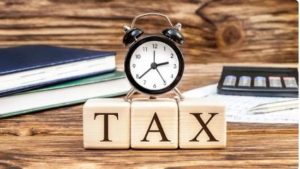
Retiring? Wary of the long arm of the taxman snatching much of your separation benefits, be it gratuity, pension, leave salary, provident fund or that golden handshake on voluntary retirement?
– After all, most of these benefits are taxable under various provisions of the Income Tax Act, 1961 (the Act), either partially or fully. Here is a guide on the income tax rules and how they impact these benefits. Let’s look at the incidence of tax on each benefit.
Gratuity
This monetary benefit received at the time of resignation, retirement or death is fully exempt from tax for a government employee.
For non-government employees covered under the Payment of Gratuity Act, 1972 (private entities employing over 10 people in a year), the tax exemption cap is set at a) actual gratuity, b) 15 days salary for each completed year of service (also a part for the year worked over six months), based on the last drawn salary or c) Rs 20 lakhs – whichever is lower.
For those working for firms not covered by the Gratuity Act, the tax exemption applies to a) actual gratuity paid, b) 15 days salary for each completed year of service, based on the average salary drawn in the last 10 months of service or c) Rs 20 lakhs, whichever is lower.
Pension
A retiree has the choice of receiving his pension in lump sum (also called commuted pension) or as monthly instalments. If the retiree was a government employee the commuted pension is entirely tax-free. For the non-government employee, one-third of the commuted pension is exempted if he/she also received a gratuity. If not, one half of the commuted pension is exempt from tax. For those who opted from monthly pension, they are taxable as “income from salary”, immaterial of whether he/she was a government employee or not.
Leave encashment
Unutilised paid leaves each year can be accumulated over a period of time and then encashed while still in service or at the time of resignation, retirement or claimed by legal heirs in the event of death. If encashed while in service, the amount is entirely taxable. If encashed at the time of retirement, those exiting government jobs will get it tax-free.
The non-government employee does not have this privilege. His/her tax exemption is limited to either i) unulised earned leave x average monthly salary (over last 10 months of service), or ii) last 10 months’ average salary, or iii) leave encashment actually received, or iv) an amount specified by the Union Government (such as Rs 3 lakhs for the financial year (FY)2022-23 or assessment year(AY) 2023-24, which has been raised to Rs 25 lakh from the current FY or AY2024-25).
Provident Fund & its interest
The contribution, earnings, and withdrawals from provident fund (PF) are exempt from tax except in certain circumstances. It depends on the type of PF i.e. recognised, statutory or unrecognised. In the case of recognised – the employer’s contribution of up to 12% of basic salary plus DA is exempt from tax. However, the same shall be taxable if there is any contribution in excess of 12% or above Rs. 7.5 lakhs. As far as an employee contribution, he is eligible for tax exemption under Section 80C but only in the case of recognised or statutory PF. Interests earned on recognised and statutory PF are also exempted from tax to a certain extent, on satisfaction of certain conditions…………………………………………….




 Driving Naari Programme launched in Chandigarh
Driving Naari Programme launched in Chandigarh






























